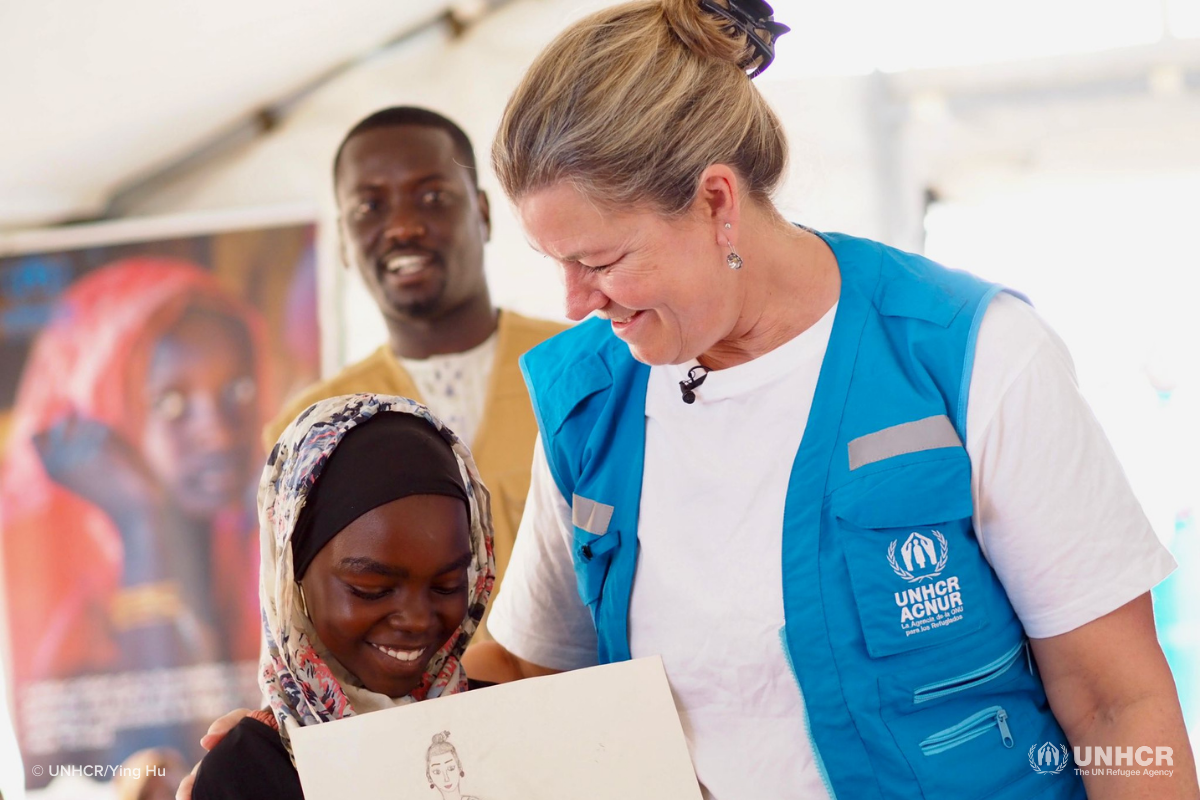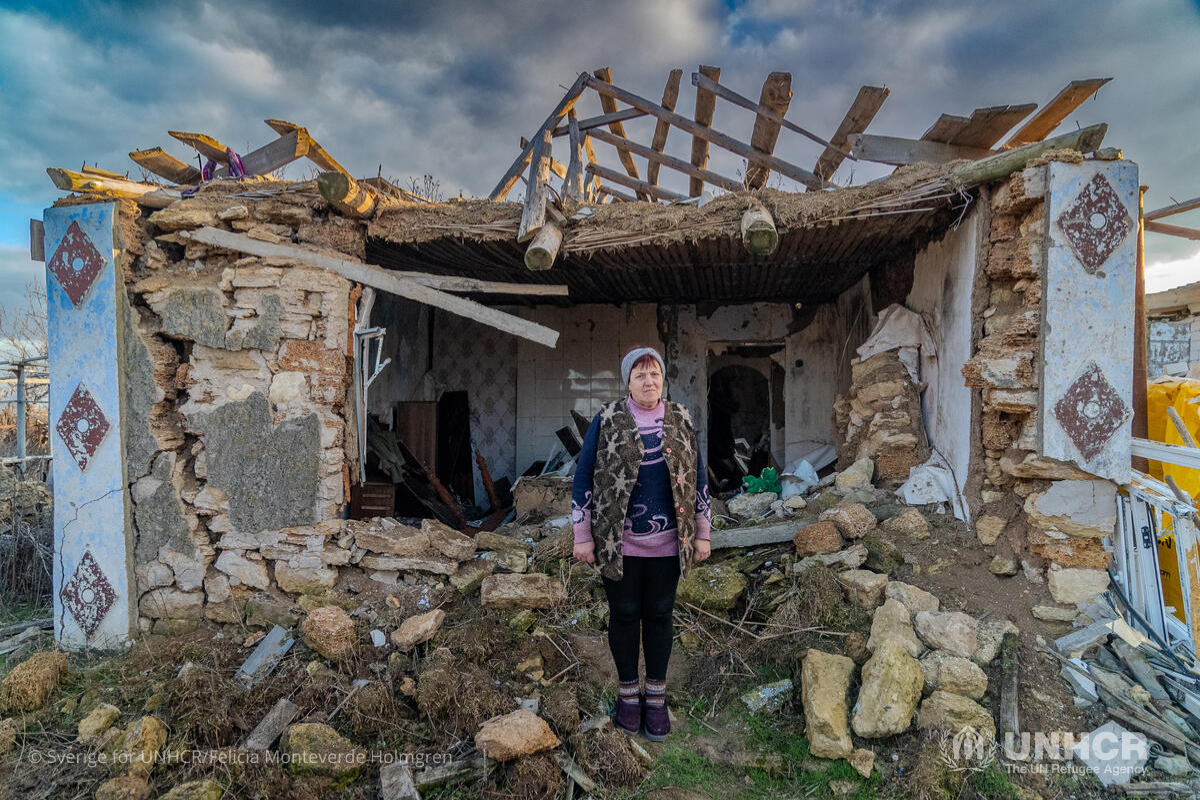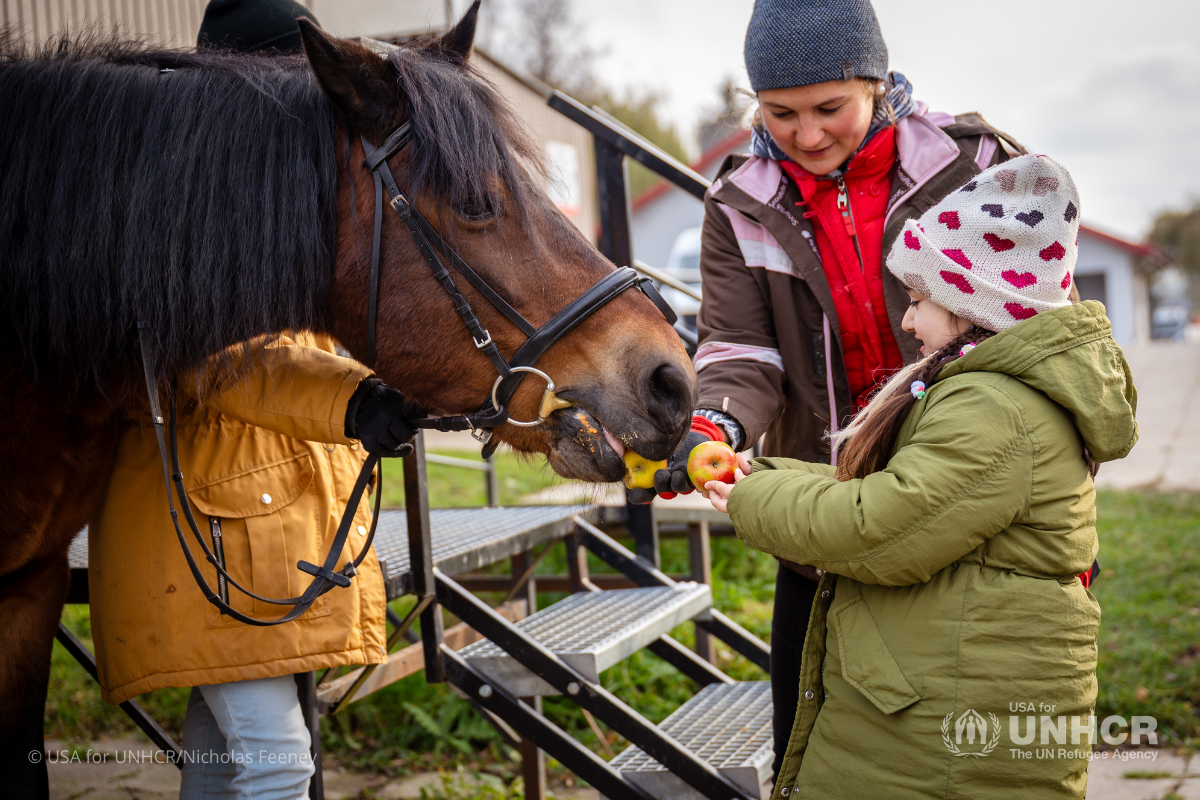Q&A with UNHCR Deputy High Commissioner Kelly T. Clements: An American with a Lifetime of Humanitarian Service
Kelly T. Clements joined UNHCR, the UN Refugee Agency as Deputy High Commissioner in 2015. She has been closely involved with multilateral, humanitarian and development issues throughout her 30+ year career.

Q. Forced displacement has surged to historic new levels across the global – with an estimated 120 million people displaced. Who are the world’s refugees and other people in need of international protection?
It is the 12th consecutive year where we see the numbers continue to increase, which reflects both new and evolving conflicts and a failure to resolve long-standing crises. But when we talk about numbers, we need to remember that there are always people and families that are behind those numbers – people who have experienced personal tragedy, people with hopes and dreams.
A key factor driving the figures higher has been the devastating conflict in Sudan: since April 2023, nearly 11 million people have been uprooted from their homes. And there are continuing conflicts in Ukraine, Afghanistan, Syria, Gaza, Myanmar. I don't think that there is a part of the globe where there isn't at least one part that isn't on fire.
Q. How do host countries cope with the influx of refugees, and what more can be done to support them?
Seventy-five percent of refugees are hosted in less wealthy countries. Responsibility sharing is falling short, and we need to strengthen global cooperation. Solutions are hard to find but we are working to bring in new actors and implement new approaches for people on the move, as well as identify a new paradigm on funding as needs continue to outstrip resources. This is why we need to think about humanitarian aid as not just the lifesaving piece at the very beginning, when people are in desperate situations, but quite quickly finding solutions that foster inclusion and self-reliance.
Q. What challenges are asylum seekers and refugees facing that may not be widely known or understood by the general public?
Refugees today are too often viewed as the problem, as opposed to a symptom of a problem. The majority of people would not leave their homes if they had any other choice. There's an assumption that refugees are just headed for wealthy countries, but UNHCR data shows that around 75 percent of refugees worldwide are hosted in either poor or middle-income countries. Most of them stay in and around the places they come from.
Q. How are climate-related events impacting displacement trends?
Climate change is exacerbating the protection needs and risks for forcibly displaced people and contributing to new, onward and protracted displacement. At end 2023, three-quarters of displaced people were living in countries with high-to-extreme exposure of climate-related hazards. Extreme weather events are becoming more frequent and more intense. These have often impacted countries experiencing new or escalating conflicts.
Q. With so many people displaced globally, what long-term solutions is UNHCR focusing on?
Voluntary repatriation, local integration and resettlement offer solutions to millions of refugees. When conflicts end, IDPs and refugees can return home. But with existing conflicts becoming more protracted and new ones breaking out, voluntary returns are becoming more difficult. Worldwide, 6.1 million displaced people returned to their areas or countries of origin in 2023, including 5.1 million internally displaced people and over 1 million refugees.
Q. Can you share a personal story or reflection from the field that gives you hope?
I don't think that there is a mission that I've undertaken where there hasn't been a personal story that’s given me hope. Last year, I was in Ukraine and I met a woman named Elena. She and her husband spent 2 or 3 weeks in their root cellar to stay safe, and when I visited, we were repairing bits of her house that had been damaged with a missile strike. When I talked with her, it wasn't about her own safety or her husband's safety. She was most worried about getting her greenhouse, which had been damaged in the blast, fixed so that she could continue to produce vegetables and apples for her community, because they leaned on her. They depended on her. These stories of resilience and selflessness stick with me.
Q. How can people in Seattle support refugees?
Continue to care. Continue to welcome. Continue to find ways where you can make your own impact, whether it’s through your business networks, your local communities or supporting global organizations like UNHCR. The networks you have are incredibly powerful, and it really takes all of us to make the world a better place.
Originally published October 20 in the Seattle Times.


